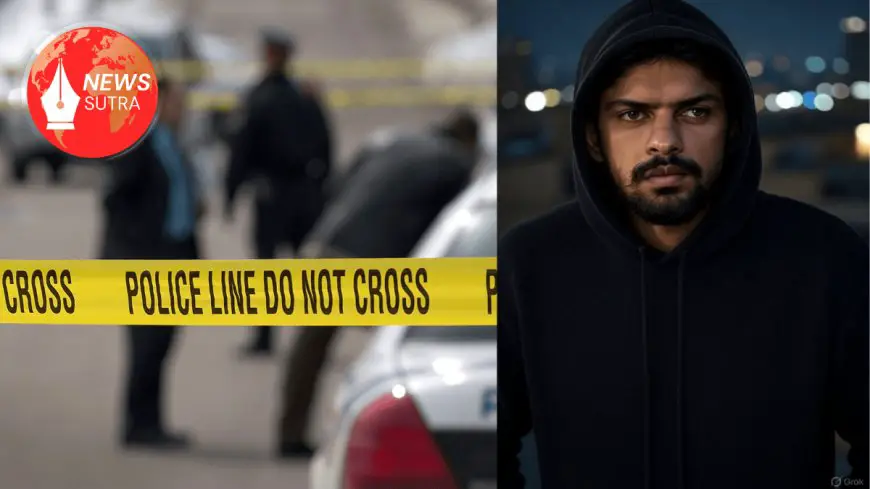BC Premier Calls for Terrorist Designation of Lawrence Bishnoi Gang Amid Rising Organized Crime Concerns
British Columbia Premier David Eby urges Prime Minister Justin Trudeau to designate the Lawrence Bishnoi gang as a terrorist group, citing its growing influence in organized crime and threats to public safety in Canada.

Rising Public Threat Prompts Political Action in British Columbia
In a rare and emphatic move, **British Columbia Premier David Eby has publicly urged Canadian Prime Minister Justin Trudeau to designate the notorious Lawrence Bishnoi gang as a terrorist organization under the Criminal Code of Canada. The call comes amid growing concerns over the gang’s expanding footprint in Canada and its alleged involvement in a series of violent crimes, including targeted killings, drug trafficking, and extortion.
Premier Eby, speaking at a press briefing on organized crime in Vancouver, warned that the Bishnoi gang is no longer just a foreign criminal entity, but a direct threat to public safety within Canada, particularly in British Columbia and Ontario.
“This is not just a law enforcement issue anymore—it’s a national security concern,” Eby stated. “The time has come to recognize this network for what it truly is: a transnational terrorist organization.”
Who Is the Lawrence Bishnoi Gang?
The Lawrence Bishnoi gang originated in India and has been linked to dozens of high-profile crimes, including the assassination of Punjabi singer Sidhu Moosewala in 2022. Over the years, the gang has transformed from a regional criminal syndicate into a transnational network with alleged connections in Canada, the UAE, and the UK.
Canadian security agencies have reportedly been tracking its members and associates operating in Surrey, Brampton, and parts of Greater Vancouver, where the group is believed to be involved in drug smuggling, weapons trafficking, and targeted violence within South Asian communities.
Documented Crimes Tied to Bishnoi Gang Members in Canada:
-
2023: A string of extortion threats to South Asian business owners in Surrey and Abbotsford
-
2024: Alleged involvement in contract killings related to gang rivalries in Ontario
-
2025: Money laundering probes tied to shell companies in British Columbia
The RCMP has acknowledged ongoing investigations but has yet to make a public statement confirming the gang’s operational hierarchy within Canada.
The Legal Case for Terrorist Designation
Under the Criminal Code of Canada, a group can be listed as a terrorist entity if it is “knowingly engaged in or facilitates terrorist activity.” While this designation has traditionally been used for groups with ideological or religious motives, recent shifts in legal interpretation have expanded its scope to include violent organized criminal networks that pose systemic threats to public safety.
Premier Eby is leveraging this evolving legal framework to push for the inclusion of the Bishnoi gang on Canada’s list of designated terrorist entities.
“When a criminal group uses fear, murder, and extortion to control communities and silence victims, the line between organized crime and terrorism blurs,” Eby noted.
Federal Response and Political Implications
As of now, the federal government has not confirmed any imminent action on the designation, though public safety officials say they are “reviewing the matter with urgency.” The issue is expected to be raised during next month’s security briefing with the Privy Council Office.
The call from British Columbia also places pressure on Public Safety Minister Dominic LeBlanc, who has previously emphasized that the federal government is taking “a tougher stance on transnational organized crime.”
Some analysts argue that the designation, while symbolic, could empower law enforcement agencies with broader tools, including:
-
Asset seizure of gang-linked properties and businesses
-
Enhanced surveillance authority
-
Visa and travel bans for foreign associates
-
Criminal penalties for anyone providing material support
Public Reaction and Community Concerns
The South Asian community in Canada, particularly in Punjab-origin immigrant hubs like Surrey and Brampton, has reacted with a mix of relief and concern.
While many support tougher action against violent gangs, community leaders are urging caution, stressing that the broader diaspora should not be stigmatized due to the actions of a few.
“We need enforcement, yes—but also dialogue and transparency,” said Rajinder Bains, president of the British Columbia South Asian Cultural Council. “Communities are also victims of these groups and need protection, not suspicion.”
There is growing concern that young Canadian residents of South Asian origin may be increasingly recruited by these networks, particularly through social media and peer circles.
International Dimensions: India Welcomes the Move
Indian officials have reportedly welcomed Premier Eby’s statement, as New Delhi has long lobbied for tougher international action against criminal elements who have relocated to Western countries.
The National Investigation Agency (NIA) of India has previously shared intelligence with Canadian authorities regarding Bishnoi’s overseas connections, including names of operatives believed to be using Canadian passports or student visas.
This development could potentially improve counter-terror cooperation between Canada and India, which has seen strain in recent years over political tensions related to diaspora activism and security issues.
What Comes Next?
The decision to designate a group as a terrorist entity lies solely with the federal cabinet, guided by classified intelligence and legal recommendations. If the Bishnoi gang is added to the list, it will mark the first time a South Asian organized crime group has received such a classification in Canada.
Such a designation would not only send a strong political signal but also reshape the way law enforcement, financial institutions, and immigration authorities engage with suspected members and supporters.
Conclusion: A Defining Moment in Canada's Fight Against Transnational Crime
Premier David Eby’s bold call reflects a growing shift in how Canadian leaders view organized crime—not just as a domestic law enforcement issue, but as a broader national security threat. Whether the federal government acts on this recommendation remains to be seen, but the spotlight is now firmly on the Bishnoi gang’s influence within Canada and the urgent need for a cohesive response.
As organized crime evolves and crosses borders, Canada’s legal and political systems may need to evolve with it—balancing national security, civil liberties, and community trust in the process.














